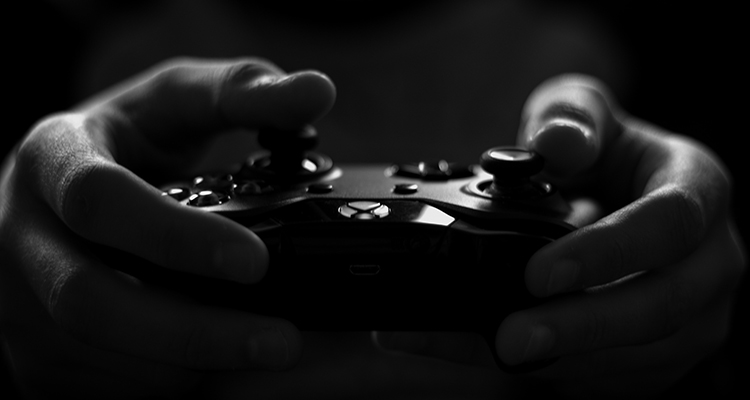What is DSM-5 Video Game Addiction?
While some people argue that video game addiction isn’t a diagnosable condition, those who suffer from it strongly disagree. In fact, new science and research suggest that video game addiction may actually qualify as a mental disorder known as Internet Gaming Disorder. In this article, we’ll take a closer look at how video game and internet gaming addiction are classified in the American Psychiatric Association’s Diagnostic and Statistical Manual of Mental Disorders (DSM-5) and what this diagnosis means for addicts around the world.

Content
What is DSM-5?
The American Psychiatric Association uses a manual known as DSM, or Diagnostic and Statistical Manual of Mental Disorders, to help medical professionals diagnose specific mental disorders. This manual contains descriptions and symptoms, as well as criteria for diagnosing a wide range of mental health conditions. The DSM is a useful tool used by healthcare professionals to effectively and clearly communicate clearly with patients. It also provides a consistent and reliable foundation for diagnosing, treating, and researching disorders. As research continues, the DSM is updated and revised to include new findings, treatment options, and even newly discovered mental disorders.
DSM-5, or the DSM 5th edition, is the most recent version and the one used today by medical professionals around the world. It took several decades and numerous experts to develop and update this manual. While several new mental disorders were added to DSM-5, some were eliminated and others were combined. A team of experts in biology, genetics, neuroscience, statistics, and social and behavioral sciences, among others, all made significant contributions.
The main purpose of updating the DSM-5 was so medical professionals could more accurately characterize the behaviors and symptoms of patients seeking a clinical diagnosis for conditions not clearly defined in DSM. Without a diagnosis, these individuals may not receive the video game addiction help and treatment they need. In an effort to expand the reach of healthcare professionals, DSM-5 was created. By defining and diagnosing mental disorders more accurately, medical professionals can help more patients now and into the future.
This latest version of the DSM now includes several substance-related addictive disorders including addictions to tobacco, alcohol, marijuana, stimulants, and opioids. As of this writing, the only behavioral addiction listed in DSM-5 is gambling. Internet Gaming Disorder is currently under consideration for inclusion.
Let’s take a closer look at what DSM-5 has to say about video and internet gaming as an addiction and how it relates to other mental disorders.
How Internet Gaming Disorder is Identified in DSM-5
As of now, Internet Gaming Disorder is outlined in Section III of the DSM-5 as a condition warranting more clinical research and experimentation before being included in the main document as a formal, diagnosable disorder.

The American Psychiatric Association’s findings and research on Internet Gaming Disorder focus heavily on the use of the Internet, describing it as “an inescapable part of many people’s lives”. Recent studies and research focus on the preoccupation that many Internet users have with online games. It’s been noted that gamers tend to play compulsively. Gaming impacts their lives negatively as they neglect other interests to the point of distress or impairment. Findings also conclude that this condition prevents individuals from prospering both professionally and personally.
Many gamers on platforms such as Reddit wonder how to identify their gaming addiction. DSM-5 acknowledges that some gamers actually experience withdrawal symptoms when they lose access to their game of choice. Many studies and findings refer to young male gamers and evidence collected in Asian countries. Studies show that gaming triggers pathways in the brain the same way, and with the same intensity, as drugs or alcohol affect an addict’s brain. This neurological response elicits feelings of pleasure and reward, which can develop into addictive behaviors.
It’s important to note that these findings and the information included in Section III of the DSM-5 focuses specifically on Internet gaming and do not include online gambling, social media, or the general use of the Internet.
Signs and Symptoms of Internet Gaming Disorder as Outlined in DSM-5
As the American Psychiatric Association and other experts explore what constitutes Internet Gaming Disorder, several signs and symptoms are being taken into consideration. The DSM-5 indicates that individuals must exhibit specific symptoms that cause “significant impairment or distress” in several areas of their life to qualify for this diagnosis.
The current symptoms being considered include:
- Preoccupation with gaming
- Tolerance or the need to game more in order to satisfy one’s urge
- The inability to reduce gaming time or failed attempts at quitting
- Loss of interest in other activities or hobbies
- The inability to quit gaming despite obvious problems
- Lying to family members and friends about the amount of time spent gaming
- Using gaming to ease feelings of guilt, hopelessness, and depression or to alter negative moods
- Gaming despite the risk of losing one’s job or damaging personal relationships
- Withdrawal symptoms when access to gaming is lost including anger, anxiety, sadness, and irritability
As it currently stands, individuals diagnosed with Internet Gaming Disorder would need to exhibit five or more of these symptoms within a year to qualify for a diagnosis. Although the classification is titled Internet Gaming Disorder, the condition also applies to gaming on other electronic devices including smartphones, tablets, and consoles. Studies indicate that individuals with significant gaming problems primarily play online games.
Ongoing Research on Internet Gaming Disorder
As you can see, there’s still some debate surrounding whether or not Internet Gaming Disorder can be classified as a diagnosable mental disorder. But the fact that it’s even being considered and is outlined in Section III of the DSM-5 shows that it’s a legitimate condition that impacts millions of potential addicts. It’s also interesting to note that the World Health Organization (WHO) added gaming disorders to its 2018 medical reference book titled International Classification of Diseases.

As with any update to DSM-5, research surrounding Internet Gaming Disorder is ongoing. These studies focus mainly on the similarities between changes in the brain when exposed to video games and other addictive substances (like drugs and alcohol).
A 2017 study published by the American Journal of Psychiatry compared Internet Gaming Disorder with gambling. The study examined the physical, mental, and social health of participants. Results showed that nearly 86% of young adults between the ages of 18 and 24 play online games and 65% of all adults also play online games regularly. Results were inconclusive on whether or not participants who met the criteria for Internet Gaming Disorder showed a decline in emotional, mental, and physical health.
Findings did suggest that there’s an important difference between being addicted to gaming and simply showing passionate engagement. The latter is described as someone who is enthusiastic and focused on gaming. The biggest factor distinguishing these two distinctions is whether or not the individual is distressed and if their life is being negatively compromised. Further research also suggests that gaming addiction may be a symptom of a more serious underlying problem or mental disorder like anxiety or depression.
The greatest debate surrounding whether or not Internet Gaming Disorder can be classified as a diagnosable condition and officially added to DSM-5 is whether this classification will help or hinder people. Scientists wonder if adding Internet Gaming Disorder to the list of recognized behavioral addictions will help those in need or simply create a new stigma around a relatively normal behavior.
Recognizing Internet Gaming Disorder and Seeking Help
Just because DSM-5 and the American Psychiatric Association haven’t officially added Internet Gaming Disorder to their list of behavioral conditions doesn’t mean you can’t identify the problem yourself. While a medical diagnosis would open many doors to treatment options and resources, it’s never too early to seek treatment and start helping yourself.
Take a look at the symptoms and warning signs listed above. If several (or even one) of these symptoms describes you, you may be suffering from gaming addiction. If you would like to take control of your addiction, The Mindful Gamer is always here to help.
Don’t let Internet Gaming Disorder rule your life.
References
- Psychiatry.org (American Psychiatric Association) Internet Gaming








